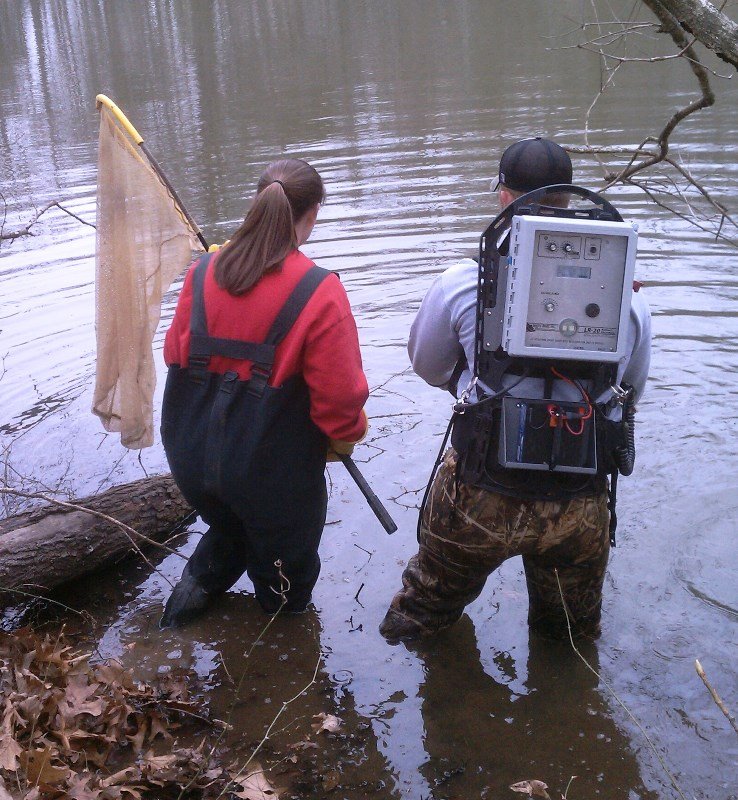
Curriculum > Conservation Biology
Conservation Biology
 "The heavens declare the glory of God; the skies proclaim the work of his hands." - Psalm 19:1 (NIV)
"The heavens declare the glory of God; the skies proclaim the work of his hands." - Psalm 19:1 (NIV)
The foundation of the Conservation Biology major at Union University is that we are God’s stewards of His creation. Conservation Biology is a science that examines the natural world around us, looking at the big picture of the inner workings of the environment and our impact on it. It is built on the assumption that humans can affect the environment positively and negatively. Conservation Biology majors learn about our natural world and the plants and animals that surround us by getting out into the fields, forests, and streams. They learn about the policies and laws that drive natural resources management in the United States and about conservation practices that can enhance wildlife and plant communities.
Conservation Biology majors at Union University should expect to have the opportunity to enjoy the great outdoors, where several classes will take you into the field for hands-on experiences. One exciting aspect of being a Conservation Biology major at Union University is the opportunity to work with the raptor rehabilitation program housed on campus. Injured hawks, owls, falcons, and eagles are nursed back to full health, with the hopeful anticipation of releasing them back into the wild.
The field of conservation biology is becoming increasingly specialized, and continuing your education into graduate school is becoming expected. Your education at Union University will prepare you for graduate studies. Conservation biology majors at Union University complete a three-course sequence teaching the fundamentals of research. Students have the opportunity to engage in field research on a variety of topics, including assessments of wild turkey populations, examining population genetics of small mammals, using radio-telemetry to examine the survival of box turtles, and much more.
Career opportunities for Conservation Biologists
- State and federal natural resources management agencies (e.g., Tennessee Department of Environment and Conservation)
- Industries where monitoring of environmental impacts must be performed or that directly manage natural resources (e.g., forest management for a paper manufacturing company)
- Conservation organizations
Major in Conservation Biology - 66-68 hours (no minor required)
Prerequisites or Corequisites: CHE 111; two MAT courses 111 or higher
- BIO 112, 200, 210, 215; PHY 112 - 20 hours
- BIO 303, 304, 305, 318, 335, 355 - 20 hours
- BIO 425, 426, 437, 498 - 4 hours
- Two of BIO 337, 358, 359, or 360 - 8 hours
- Four of BIO 301, 312, 315, 316, 321, 324, 336, 356, 357 - 14-16 hours
Conservation Biology Majors may meet the requirements to become a certified wildlife biologist by taking twelve hours of communication. The General Core requirement for COM 112 and electives of COM 121 and COM 235 may be used to fulfill 10 hours of this requirement. The remaining hours may be selected in consultation with your assigned faculty advisor.
Featured Coursework
- BIO 200 Wildlife Biology
- BIO 210 Zoology
- BIO 301 Invertebrate Zoology
- BIO 303 Natural Resources Policy
- BIO 305 Conservation Techniques
- BIO 315 Genetics
- BIO 318 Ecology
- BIO 335 Conservation Biology
- BIO 336 Ecology and Conservation of the Vertebrates
- BIO 337 Taxonomy of the Vascular Plants
- BIO 355 Environmental Ethics
- BIO 356 Marine Biology
- BIO 357 Ornithology
- BIO 358 Plant Physiology
- BIO 359 Dendrology
- BIO 360 Plant-Insect Interactions
connect with us